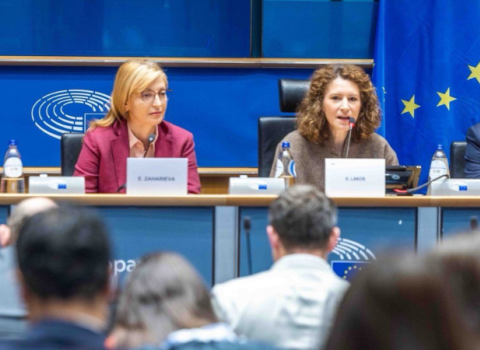
Intercell’s Gerd Zettlemeissl
The company, Intercell, is now one of Europe’s biggest home-grown biotechnology companies. It has gone from six employees in 1998 as a spin-off at Campus Vienna Biocenter to more than 140 employees today. It raised more than €100 million through three fundraisings, before its flotation on the Vienna Stock Exchange in February 2005. Its revenues are growing: Merck & Co recently paid a $1 million milestone payment for progress in the development of a bacterial vaccine candidate.
Related article
What goals do you have for Intercell?
The global vaccine market is dominated by five top vaccine companies - Sanofi Pasteur, Merck & Co, Glaxo Smith Kline, Wyeth and Chiron Corporation. [They account for 90 per cent of the total vaccine market.] We want the fifth slot, or to become the one besides Chiron. I would know we have made it if we become the top five of the vaccine field; that means we will be the leader of vaccine technology.
For a European biotech company, Intercell is quite sizeable. How?
It’s all about successfully developing the technology, solid financing and quality management. Having basic commercial IP [intellectual property] is very important, also. But to have quality management is what differentiates us from other start-ups. The company is structured to leverage scientific, financial and IP expertise. Direct reports to the CEO are minimal and the scientific, manufacturing and commercial knowledge base is closely managed
How will Intercell expand? Would it merge with a big pharma company like most biotech companies do?
There are many ways to expand. By acquisition, technology and product programmes development, merchant acquisition or with our existing business - the vaccine area - to create vaccines with biotech players or through mergers. These are the options but we are not in active talks with anybody currently.
How big will the market become for Intercell’s products?
Intercell has two lead products with significant market potential. The first one in the pipeline is a prophylactic vaccine against Japanese encephalitis, which has already entered phase III clinical trials. That particular market could grow to about €250 million. The second lead product is a therapeutic vaccine against hepatitis C which is currently undergoing a phase II clinical trial. The HCV market, which has no current approved vaccine, is expected to be more than €3 billion.
Biotech is very heavily regulated in Austria. Has the company thought about moving out of Austria to countries such as Britain or the US?
We have a very, very good place in Vienna. Austria has the right scientific environment and it has the right biotech industry environment for the vaccine industry. We got the right support here from Austria. We have 14 different nationalities who work in our company.
And what should the government do to encourage more biotech start-ups or the growth of a bigger biotech industry?
In Austria, the country started maybe ten years later than other countries, such as the UK with its biotech industry. Now Intercell is the biggest vaccine company in the biotech field in Austria and I have to say the support from the government and the city to biotech start-ups has been excellent. It started very late but now it has become very solid.
How has your move to Intercell affected you personally?
It has definitely affected my family. My son (20 years old) is going to business school and my daughter (17 years old) wants to go into the medicine field. Personally and professionally we have been very happy. Four years ago when I left Chiron for a smaller company, many people thought I was crazy. But now they understand why.
Do you consider yourself more of a scientist or a businessman?
I consider myself a hybrid from both worlds.
Do you think scientists make good business leaders?
Yes. It's easier for scientists to become businessman, but for a businessman to be a scientist - that's not easy.





 A unique international forum for public research organisations and companies to connect their external engagement with strategic interests around their R&D system.
A unique international forum for public research organisations and companies to connect their external engagement with strategic interests around their R&D system.